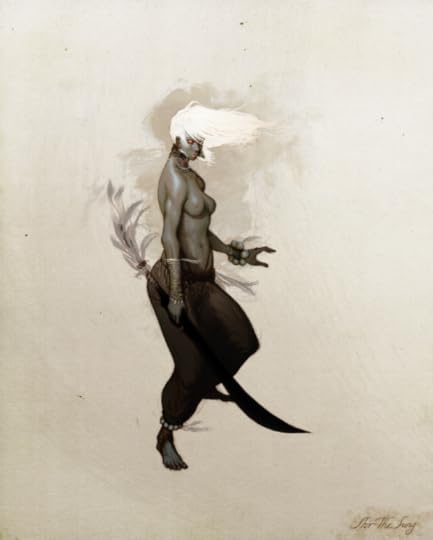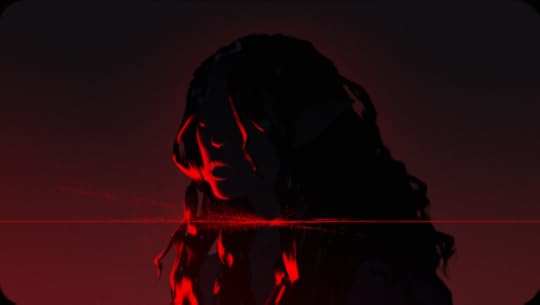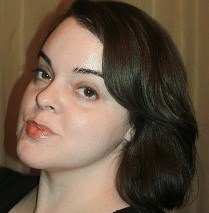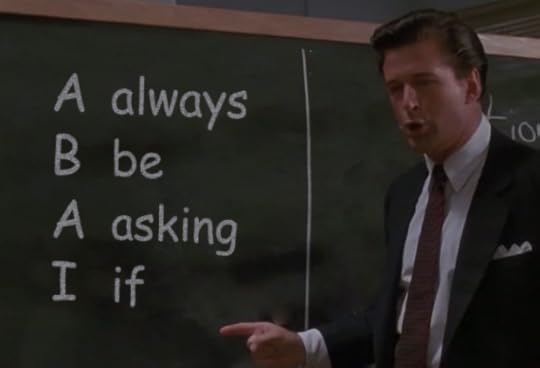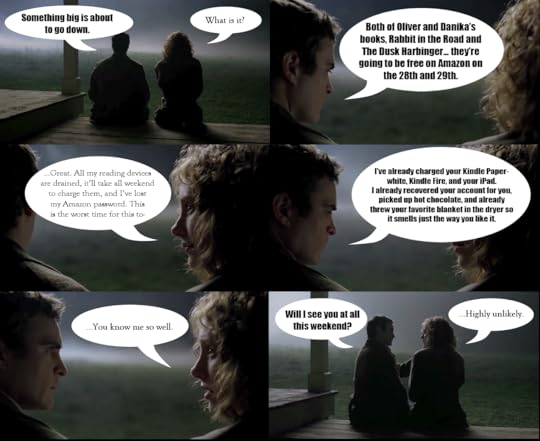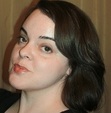Danika D. Potts's Blog
May 16, 2016
Meet Sadah, Again: This Is What She Looks Like

I know it’s been some time since I’ve had much to say over yonder, but I thought I would pop on by and say hello.
It’s been a very busy place in the land of Danika and Oliver, and way more than I could ever fit into an individual blog post. Nevertheless, I wanted to take the time to come and share a big moment for us.
When I first sat down and started conceptualizing The Twisted World years ago, I had a very clear cut picture in my head for each of the principle characters, and even associated colors with them. Kathan would be blue; royal, true and strong. Piotr would be green; not yet cynical, young and full of potential. Sadah would be red; provocative, angry, yet full of heart. Each of these characters is represented in the triskelion on the cover of The Twisted World, and each book will focus on an aspect of each of them. I spent several years slowly combing over the internet in a search for art and music that captured these ideas and kept them front and center as the first story was being told.
It was then that I stumbled across Justin Cherry, aka Nivbed. It was a single piece of art that completely surrounded one of those aspects of Sadah that reeled me, his ‘Shir the Sung’:
Justin Cherry tends to be an amazingly vague, enigmatic, and fantastic artist. I can’t tell you how many nights I spent studying this piece of his and what it had to say (and didn’t say at all). I saw a lot contained within Shir. Her legs and torso describe her power without sacrificing her femininity, her choice of weapon denoted her dangerousness yet her eyes were inviting at the same time. Her garb, jewelry and hair told me that she wasn’t wild, but tribal; simultaneously filled with information yet an unknown to those that might’ve encountered her. Everything about Sadah was born from this picture, I just merely injected soul into her form and made her a person you could know and how she came to be.
Hence, we come to Twitter.
In an off-chance and out of the few times Justin pops out of wherever he goes to do art in his mind, he made a very brief update on Twitter, and I responded and let him know what was born from his own work. Now that I have the ability to write a bit longer than what Twitter provides, I can tell you this beyond a shadow of a doubt:
If I can speak of and tell you about The Twisted World, Justin Cherry sees inside of it.
This is why it makes me very, very proud (and emotional) to show you exactly Sadah; this is her. This is her essence, this is her anger, and her passion. This is her allure visualized, and I can tell you that it is accurate. Say hello.
Those of you who know, this is the “something dangerous in the dark.”
Thank you, Justin.
~Oliver
Justin Cherry’s Prints For Sale


March 4, 2014
Two Part Interview-Danika D. Potts and Oliver Campbell Day Two
Part 2 of our interview with Rebecca Poole, with Danika!
 Originally posted on Randomosity:
Originally posted on Randomosity:
Here’s the second part of the interview I’ve been so lucky to have with Danika and Oliver Campbell. I’ve really enjoyed getting to know how this dynamic writing team works. My husband is constantly wanting us to write together, and I’ve been nervous about doing so. After reading these answers, I’m going to certainly give it a go and see what happens.
Thank you both for visiting my blog. It’s been wonderful getting to know you both.
Interview Questions for Danika D. Potts


March 3, 2014
Two Part Interview-Oliver Campbell and Danika Campbell Day One
Here’s Danika and I’s fantastic interview with Rebecca Poole. You’ll find Danika’s tomorrow!
 Originally posted on Randomosity:
Originally posted on Randomosity:
I’m very excited to have both Oliver Campbell and Danika Campbell, a husband and wife who co-author books together. Today’s interview is with Oliver, and tomorrow’s will be with Danika.
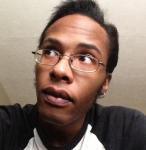
Before we start talking about your latest book, why don’t you tell everyone a little bit about yourself?
I’m from the Midwest and have had an interesting career in video game journalism. I’ve done a bit of work as an editorialist and reviewer for a variety of smaller game news oriented sites including Hard4Games, EOGamer, and Video Game Scoreboard. I am also married to my co-author.
When you’re not writing, what other things do you do in your spare time?
As I’m a video game journalist, I spend a lot of my off-time gaming. Some games are for work, others for pleasure. Since storytelling lives in the territory of both games and film, I tend to consume a lot of both. I find it to be good study material to see where everyone else is headed, as well as helping me spot trends. Other interests that I have include baking, studying psychology and philosophy.
You co-write with your wife. Do you ever have conflicting ideas for your stories? If so, how do you work through them?
Oh, absolutely. Working in a team presents some interesting challenges, but we find ways to work through them. Early on we discovered that the best way to proceed was to learn how to separate our relationship from the work. When we’re in discussion regarding any of our projects, we treat it as a business relationship and act accordingly. When we have ideas or thoughts on progression that conflict with each other, we often use a pro/con approach to see which idea will present the most benefit to the work itself. Learning how to toss aside your ego for the greater good of the work is easily the most important thing you can gain from this method of creation.
Where do you get your ideas from?
The short answer? Everywhere. The longer, more fulfilling answer comes down to a simple question: “What if?” I’m a firm believer that almost every work of fiction asks a what-if question, and attempts to provide a potential answer to it within the narrative. Using this idea, I may hear about something in the news or may peruse an interesting fact in my studies that causes me to ask if circumstances were different, what the potential outcome might be. Here’s a few interesting questions for your readers to consider as story what-ifs:
a) What would the world be like if there was no gold (the mineral) in it?
b) What would human civilization be like if we consumed salt water instead of fresh water?
On the surface, these two questions seem rather uninteresting and dull. If you look further into them, the entire world is changed in ways that are almost unimaginable. Gold is a precious limited resource and quite a few industries rely on it. Without it, certain technologies might not exist or alternatives would have to be found. If human beings consumed salt water instead, most human civilization would be found at the shores of oceans on every major continent and water would have to be imported in-land. These are just a few examples, but you can see how there’s a lot of wiggle room to create brand new worlds and scenarios that are worth exploring. Just change one tiny facet of how all of this functions, and you have a world much different than the one you know.
Is it hard to come up with character names?
For me, it’s not very difficult at all. The number one piece of advice that I can give other storytellers is to stop naming characters before you’ve settled on your narrative. It’s a common trap and locks you into certain things. When you’re naming a character, it’s important to consider their situation and the civilization that they come from. We choose our names based on a variety of factors including what we’re exposed to, current cultural norms and standards, and even what other people have named their own children. Sure, you might have settled on a really cool name that you like, but if it doesn’t meld and flow well with the other character names you have in your story, it’s going to stick out like a sore thumb. In our first novella Rabbit in the Road, we actually sat down and studied the naming convention of America during the time period it takes place. Of course, this doesn’t necessarily apply to all stories; treat it as a guide and not a rule.
Is music a factor when you’re writing? Do you create playlists for your books?
Music is absolutely a factor when we work. There’s an entire playlist of music for Rabbit in the Road (and those songs are even referenced in the book itself). Music is a powerful entity when it comes to constructing a narrative. As we know, music has long played a major role in human civilization. A song can be a motivator and other songs can be highly demoralizing. Music invokes strong feelings in people. When we construct our works, we make sure that there is music appropriate to the scenes that we are creating to put us in the right frame of mind. I can’t recommend it enough.
Out of all of the stories you’ve written so far, what is your favorite and why?
Oh, this is a tough one, but I’m going to have to say Rabbit in the Road. It was a very exciting time for us and a brand new venture. Rabbit in the Road was an incredibly successful endeavor for us, and an experience worth doing. There were a lot of things that we didn’t know and had to learn on the fly, and there was a great deal of impact on release. When we were at a wedding some months back, I was approached by several women whom I was not aware had read the book and told me how much of a difference the work had made in their lives. To be able to directly interface with your audience and to know that your work did in fact change the world, that’s a feeling that can’t be replicated by much else.
Are there any genres you’re looking to branch into?
There are several genres that we’re toying around in at the moment. Several works have been outlined in other genres including science fiction and romance. There’s also a super secret project in works in a genre that hasn’t even been invented yet. We’re really excited about that one.
What is the hardest thing about being a writer?
The most difficult part about being a writer is learning to grin and bear it. Not everyone is going to like your work, for many different reasons. I have found this to be true both in fiction and in my journalism work. The most important thing that I can tell any prospective writer is to not give your negative feedback so much attention. Sure, you should see if there is actually helpful criticism that might help you improve your craft, but if there isn’t, pay it no mind. Focus your attention on those who are strongly supportive of you and make sure you support them in turn. These are the people who are going to promote your work, so you would do well to give them lots of care. It will pay off.
Why don’t you tell us a little about your latest work? Please feel free to provide a blurb and a snippet, along with the cover image.
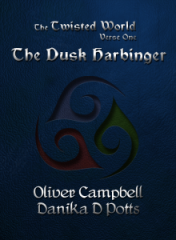 Our latest work is The Twisted World Verse I: The Dusk Harbinger. It’s our first foray into high fantasy, and has been very well received. In recent years we’ve found it very difficult to find fantasy that is palatable to our tastes, so we decided to sit down and create a fantasy world that we would find enjoyable. One of the first things that we settled on was to turn genre tropes on their ear, and in that effort I believe that we’ve succeeded. Our target audience for The Twisted World has been primarily women, and we’ve REALLY resonated with that audience.
Our latest work is The Twisted World Verse I: The Dusk Harbinger. It’s our first foray into high fantasy, and has been very well received. In recent years we’ve found it very difficult to find fantasy that is palatable to our tastes, so we decided to sit down and create a fantasy world that we would find enjoyable. One of the first things that we settled on was to turn genre tropes on their ear, and in that effort I believe that we’ve succeeded. Our target audience for The Twisted World has been primarily women, and we’ve REALLY resonated with that audience.
“Kurt Kathan, the accidental king of Gwenaelle. A man who has everything that any adventurer could dream of having, and unsure of what to do with it.Sadah Loc, the woman from the land draped in near perpetual darkness. A beautiful songstress who can no longer sing.
Piotr Carlyle, a rather unremarkable boy with a remarkable ability to change the world. Yet he has no desire to do so.
Strange phenomena known as Twists litter the world of Su Nobieta, taking common place things and morphing them into seemingly impossible realities. Through chance, young Piotr is bestowed the power to undo the horrors that these Twists have wrought.
This is the journey of these three fated individuals, each deeply scarred by a harsh world. They will uncover the secrets of the Twists, the nature of the Gods of creation, and most importantly, discover themselves.”
The Twisted World Verse I: The Dusk Harbinger is an Amazon exclusive ebook title, and will soon be accompanied with a paperback edition to be released shortly.
Fun/Silly Questions


February 25, 2014
Writer’s Bootcamp #2: How To Construct A Plot, or A.B.A.I.
Do you see that up there? I want you to commit that to mind RIGHT NOW. Do whatever you need to do to remember it, I don’t give a shit. Memorize, write it down, tattoo it on your body, whatever it takes.
Two letters. I and F. IF. This is the MOST IMPORTANT WORD YOU’LL USE TO CREATE A PLOT and a story worth half a damn.
if
noun
1. a supposition; uncertain possibility: The future is full of ifs.
2. a condition, requirement, or stipulation: There are too many ifs in his agreement.
A question as simple as “What if” goes a long-ass way towards spinning a tale out of your imagination. In fact, the vast majority of ALL fictional works that have ever existed can be summarized down into a WHAT IF question. Rather than tell you, I’m going to show you, and then I want you to try it for yourself:
Star Wars: “What if a lone farm boy in space discovered he had long thought lost magical powers?”
The Count of Monte Cristo: “What if a man was thrown in jail and had a chance to escape and take revenge over a long period of years?”
Stephen King’s It: “What if children’s fears weren’t actually their imagination but real and only they could see them?”
Harry Potter: “What if there was a school for witchcraft hidden in a space that normal people couldn’t see?”
Spider-Man: “What if a boy was bitten by a spider that gave him powers that was like a spider?”
I could keep going forever, but I think you get the point. ALL stories are rooted in a deep IF. This is where you need to start. But where else in your work does the “What If” question extend? The answer: EVERYWHERE.
The most bone-headed thing you could do to ensure that you are going to fail is to start writing your story without knowing where the hell you are headed. That’s like packing up, getting in your car and starting to drive without a destination in mind. Sure, it might be fun at first but… eventually you’re going to run out of gas, or get stranded, or any other dozen things that could happen. And then you realize you don’t even know where to turn for help and you’re just stuck. Does that sound familiar?
It’s called WRITER’S BLOCK. Being able to answer, know, and define your what-ifs is your safeguard against it.
Every decision that your characters make is a choice of IFs. If they go left, this happens. Or if they go right, that happens. Your job as a storyteller is to be able to see where those paths go and pen those results. If you plan ahead and KNOW the final destination of your story, you can direct the IFs in your narrative to ensure that a writing block does not occur. If you don’t, you’re just asking for another piece of work never finished, because you were too damn proud to plan accordingly.
A story is NOTHING but a very long and complicated series of cause and effects. A story typically begins with some event (a cause) happening to the main character, which then leads into your story (the effect). From there, all your character is doing is moving around from effect to new cause until they eventually reach the predestined conclusion you have set for them. Cause, and effect. IF this event occurs, then THIS effect will happen.
Always Be Asking If. It is your lifeline.
~Oliver


Writer’s Bootcamp #1: Creating Fantastic Characters

Time after time do I see people sit down and create bullshit characters that no one gives a fuck about, are completely cliche and offer nothing unique, original, or don’t even bring fresh perspective to already established archetypes. I’m going to put a stop to that. Here’s what you NEED to know to create characters worth a damn.
1. DON’T create characters before you’ve decided on what your story is. DO create characters that serve your narrative.
Characters, like props, are objects. Every character that you write in a story is disposable. Stop forming attachments to them and remember that their ultimate goal is to help you tell your narrative. A character should only exist so far as they do to serve the story. If they no longer serve the narrative in a meaningful way, axe them. Characters are vehicles for story.
2. DON’T make pointless character sheets to ‘discover’ your character. DO ask the REAL questions.
Time after time I see people telling you to fill out a questionnaire on your character to try and discover them; but it’s never relevant shit. It’s always some crap like “What’s their favorite food” and “What is their favorite flower” and other such tripe. Cut that shit out. It’s not making you ask the REAL questions that you need to know about your character. It’s dancing around the subject, the most important question of all:
Who the FUCK is this person?
You can’t discover who a person is just by knowing what their favorite X is; you knowing what my favorite book is isn’t going to tell you whether I’m an asshole or not. That’s not really relevant information. My reading habits, when I read them, how I read them, that stuff IS going to tell you something about me.
The number one easiest way to discover who your character is is to find out what’s WRONG with them. And I don’t just mean who they’re beefing with in their community or what not. I mean, what the hell is wrong with this person? Do they suffer any health afflictions? Psychological problems? I can write you a better character right now in the next paragraph than most people do in dozens of pages of character development. Observe:
Allen had always been an insomniac since he could remember. He consistently had trouble sleeping at night, and when he did manage to get a few moments of shut eye, it was troubled by restless dreams. Although he was tired all the time, he discovered early on the benefits of it. Because he was awake more often than other people, it gave him plenty of time to think alone when the rest of the world was quieted, tucked away in their beds in their collective unconsciousness. It provided him time to pursue quiet hobbies as well, and he’d taken up an interest in model plane building.
Boom, there you go. Do you see the affliction there? The guy can’t sleep, and it AFFECTS THE REST OF HIS LIFE. Cause and effect. We’ll get into that right now, actually.
3. DON’T do whatever the hell you want to protect your character. DO give them realistic consequences for their actions. Cause and effect.
Our example character in point #2 suffers from insomnia, and this thing branched out into other aspects of his life. Because of this condition, he also has problems with concentration due to exhaustion, which is a known side effect of insomnia. What are some complications of poor concentration for Allen?
a) Allen could be involved in a work place accident (or make a severe error on paperwork).
b) If Allen operates any machinery (and a car would be a very common one), he could be involved in a severe accident, causing even greater injury to himself or others.
Points A and B are very serious, VERY REAL potential consequences for Allen. If some kind of potential negative outcome doesn’t happen to him, it would make his insomnia POINTLESS. It has to effect his life in some way, shape, or form. A character should never suffer something arbitrarily; it should SERVE THE NARRATIVE.
4. DON’T write characters that are detached from your world. DO make them react to it.
Your unique characters don’t exist in a bubble; they are living, THRIVING members of an ecosystem of human beings. The actions that others take in a narrative can and should have an effect on your primary characters. Here’s a question that you should ask yourself, for sake of easy example:
What were you doing the morning of September 11th, 2001? A lot of people who were affected by the Twin Towers weren’t in those buildings, and most didn’t even live in New York at all; a lot of people had friends, family members, business associates there. Business deals were delayed, rescheduled, or all out canceled. There were people who didn’t come home for dinner that night, flights that were cancelled. Many schools closed that day, throwing many peoples lives into temporary chaos due to schedules running completely amok. I could go on and on. Just because you weren’t there for the event, doesn’t mean your life wasn’t impacted. Your characters should also be effected by large events occurring within your narrative world.
5. DON’T give your character a unique and/or exotic name without justification. DO name them according to cultural and societal norms for your work.
Someone who is named L’Carpetron Dookmarriot in a sea of people named Bill, Betty, Frank, and Joseph is going to stick out like a sore fucking thumb. You don’t just pick random-ass names because you like the way it looks. Sure, we all see names we like and want to incorporate them, but just because you CAN doesn’t mean you SHOULD.
When you create a character, think about the world that they’re ABOUT to inhabit. Are you writing a period piece set within the 50′s? Are you writing a futuristic novel where naming conventions have changed, such as no one has surnames anymore? Are you writing a sci-fi piece where people have made contact with other lifeforms? It should be pretty obvious that if you write a story that is set in France, your characters will PROBABLY have french names. If they don’t, you need to explain why. Are they a foreigner? Maybe they have dual citizenship with another parent coming from a separate country and is named from their naming convention?
The point is that you don’t pick this shit willy nilly based on how you FEEL. Your feelings as a storyteller can be the maker or breaker of your work. Don’t let that shit get in your way. An architect doesn’t FEEL about his designs. He creates with an exact goal and purpose in mind, and your job is no different.
6. DON’T write characters based on how you view the world. DO write characters based on how OTHER people view the world.
One of your greatest fuck-ups is going to be creating a gaggle of characters that all side flat or dull, or all agree with each other. One of the greatest causes of human conflict is the fact that we don’t view the world in the same way. We see information or interpret facts differently, which causes disagreement. If you spend all your time writing a bunch of characters that all think and act like YOU do, you’re not going to get anywhere.
When you sit down to create these people, THINK for a fucking change about all the different people you have SEEN and dealt with in your life. Think about the people you’ve hated or disliked. You don’t have to agree with them; you have to agree that they EXIST. When you’re building characters, be sure to stop and take the time to think about how their personalities might not mesh together and what situations might arise from their different view points. This is the bread and butter of character interaction, the meat and potatoes.
Disagreeableness and drama go hand in hand. If there is no drama, there is nothing exciting happening in your tale. Which means your audience is going to be very bored. To prove a point, think about your own extended family. A whole lot of them don’t get along, and actively fight each other. How many movies, books, etc can you think of that JUST deals with inter-family dramatization? Should they be getting along as a family? Of course. DO they get along? Of course not. Why? Because they’re still PEOPLE, and people fight. It’s a fact of life.
Learn to see conflict for what it is, and then embrace it. It’s your tool for success.
___
Follow these rules, and you WILL create more compelling, interesting to know characters. I’m not going to sit here and blow smoke up your ass and tell you, “If you just do X you’ll be rolling in dough!” No, I told you that you are going to make FANTASTIC characters. The kind that people remember, and will talk about long after your work has been done and you’re onto the next thing. If you’re lucky, you might even make a few bucks while you’re doing it.
~Oliver


Introducing Writer’s Bootcamp
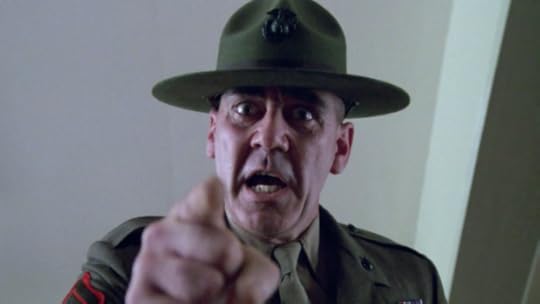
You want to be a writer, a storyteller? Alright, fine.
See, it’s been a while since we’ve done some serious blogging over here. What can I say, we were off WRITING and PROMOTING our own work. That’s what writers do. They WRITE. People have been asking me to sit down and do a writer’s bootcamp for a while now; I shied away from it, too worried about how people might react or someone getting their little FEELINGS hurt.
That worry stopped a few weeks ago.
So, here is what is coming in this new series from me (and hopefully a lot more frequent posts). You want to be a storyteller? Then sit down, SHUT UP and listen. I’m going to tell you what you need to know, and what it takes to put together damn good stories. I’m not going to sit here and try and convince you that I know what I’m talking about. I don’t need your approval or your permission, my released works that have incredibly high ratings and critical reviews speak for themselves. I’m just going to talk, and if you’ve got any sense in your head, you might even listen.
What’s the matter, get offended? Still here? Be offended all you like, because I don’t give two damns. If you’re the smart one who’s still here, that means you might have what it takes to be a good storyteller. Step one is learning how to put aside your feelings in order to consume the important information that you need to know. I’m not here to worry about your feelings, I’m here to make you a damn good storyteller. If you want your feelings coddled, there are a million other books, blogs, and guides that are going to do just that for you. This isn’t one of them.
So what’s it going to be, buttercup? Do you want the knowledge, the secrets of the craft, or do you just want to sit around and FEEL GOOD about yourself and not create anything worth a damn? 50% of success is just SHOWING THE FUCK UP. 40% is LISTENING and the final 10% is APPLIED KNOWLEDGE.
So, let’s get it on. Bootcamp starts today.
~Oliver


December 30, 2013
Final Notable Quotable of 2013: Study Greatness
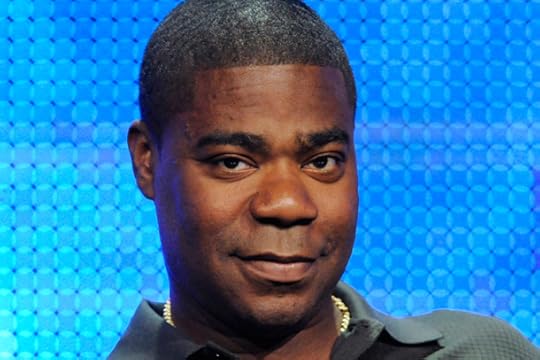
“Study! Do your homework! I used to always tell you, do your homework. Get footage! How the fuck are you going to know how to be great if you don’t study GREATNESS?!” ~Tracy Morgan, 2012
Well, here we are. Closing out a third year of writing and telling narrative. This year was a very, er… MIXED year. I won’t really get into that, but I think it was successful in some choice aspects. The first book of The Twisted World came out, and we’re well on our way into the next book with hopes that it will also be out this summer.
Tracy Morgan, although a comedian (but nonetheless related), makes a great point that should catch your attention. In this interview he was making some comparisons to sports, but it also applies to storytelling. How, exactly, do you plan on being great if you don’t study greatness?
Why would you expect to be a fantastic storyteller if you can’t be bothered to study what came before? As a storyteller you derive your ability to tell stories not from your own work, but from the work of countless storytellers who came before you. Not just storytelling, but almost every other career aspiration is built upon the works of the previous. Now, this doesn’t mean that you can’t be a good storyteller WITHOUT studying prior work; that’s a fallacy. It all had to start somewhere with someone being completely inexperienced (and with no precedent), RIGHT?
What I AM saying, is that it’s going to be a lot tougher than it needs to be when you don’t look at everything that came prior. Being able to look at and analyze the work of others is your ultimate boon. You can see what they did wrong, and you can see what they did RIGHT. You can take a fantastic basic premise, and expand upon it. You can grow it, evolve it, turn it into something brand new and exciting. Look at the best in our field (and I’m not talking about our flash in the pan here today, gone tomorrow storytellers); study and figure out what they did to become so noteworthy that their work now precedes them in reputation.
You can, and almost anyone can, become a GREAT storyteller if you take the time to slow down and pay attention to all the works of story already around you. This coming year, I want you to focus on doing EXACTLY that. Go forth, and study greatness. Watch movies of all kinds, even the stuff you don’t like. Read books that you normally wouldn’t read. Play games you wouldn’t normally play. Take notes. LOOK AT THE GAME TAPE.
When we come back next year, we’ll definitely be more active again as we wind up towards The Twisted World Verse II and other smaller unannounced projects.
Have a safe and Happy New Year. Hell, I know I need it.
~Oliver


December 9, 2013
Rogue Legacy: One of the Most Important Stories of 2013
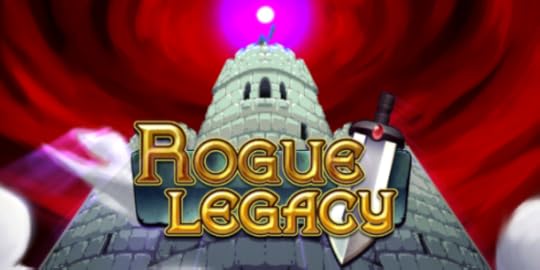
Rogue Legacy. Have you heard of it? Likely not.
An independent video game released by Cellar Door Games (consisting of brothers Kenny and Teddy Lee), Rogue Legacy is, for lack of a better descriptor, a ball-buster of a game. Taking inspiration from both platforming titles and the classic roguelike genre, your goal as a player is to traverse a procedurally generated castle that changes its internal shape each time that it is entered. But we’re not here to talk about game mechanics, we’re here to talk about story.
Truth be told, the greatest tales throughout human history have consisted of very little dialogue, with feats and action being the backdrop for the narrative. Rogue Legacy brings us an incredibly sad tale, one steeped in many rich narrative concepts: family, responsibility, betrayal, sacrifice, and bloodshed.
The narrative of Rogue Legacy begins with a knight by the name of Johannes entering the shapeshifting Castle Hamson in search of a purported cure to heal his father the King (and your ancestor) of a grave illness. Johannes enters the castle and does not return. And this is where your many, many stories begin.
Rogue Legacy has an incredibly impactful story that could only be told through one of its core game mechanic: Permanent death and genetics.
Each time you enter the castle to attempt to conquer it and discover the secret that has doomed your family line, a brand new character is created. They have a name, they have their own unique way of doing things (each character has a chosen discipline, such as being a barbarian, a warrior, a mage, etc). But it’s more than just that; they have their own unique flaws. Sometimes a character will have been inflicted with irritable bowel syndrome, dyslexia, stereoblindness, and many more possible traits from birth.
The Brothers Lee have done something incredible here: For all that Rogue Legacy is rather silly, the characters that you play are very realistic depictions of humans in this aspect. Flawed people.
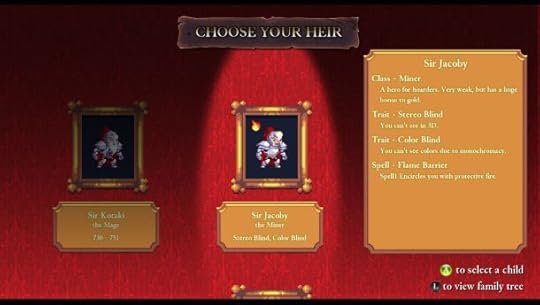
Rogue Legacy is, if anything, a beautiful depiction of the classic Shakespearean comedy and tragedy. It very frequently pokes fun at itself, but if we peel back the layers and really look at the narrative, it is anything but funny. For example, there are only two possible outcomes of each attempt to enter the castle with a new child descended from the original bloodline: Victory, or death. More often than not, that outcome WILL be death.
What drives a man (or woman) to walk into such a scenario, knowing that if they do not succeed, they will die and have little left behind to herald their existence? Family duty, perhaps. Honor. Maybe the pursuit of answers (of which you will find many as you traverse the castle, uncovering pieces of the journal that Johannes left behind in search of the cure). But let’s really examine the motivations of these characters, not from a game mechanic perspective, but from a narrative one. Let us look at Rogue Legacy from the point of view of one of the descendants of Johannes:
“When I was a child, my father left us. To conquer what has been in so far, unconquerable. The Castle Hamson, the place where our ancestor had vanished to ages ago. Our family has been very poor for a long time, all of our wealth taken away when Johannes made a deal with the demon Charon in pursuit of his… justly goal.
Father told me of when he was a child and his father left for Hamson, to at last rid us of this accursed fate and to bring closure to our sordid history. Grandpa failed and didn’t come back. Now that Father was of age, he too was going to attempt to finish the unfinishable. I was afraid. I didn’t want to lose my father. He told me not to worry, patting me on my head as he slipped his helmet upon his head, and told me that he would be the one to break this neverending cycle. He smiled down at me, and I smiled back up at him. I wanted to believe him, I truly did, but I knew it was a lie. I think he did too.
He never came home.
The heartbreak was painful… and yet, it was expected. Over the past several hundred years, every family head has tried, and failed to stop this seemingly neverending cycle of loss. And now it’s my turn.”
Now THAT is a story.
The most interesting thing about the narrative of Rogue Legacy is that when you finish the game and discover the secret of the castle and look back over things… Dozens, if not hundreds of unique people have been killed, all in the name of what? Was their unique life a justifiable cost for this? At the end of the day, when you as the player are making your return, you don’t feel satisified and vindicated. Instead you are left with the overwhelming feeling of a pyrrhic victory. The Brothers Lee here have tackled some pretty heavy issues in their story that few people have taken the time to explore, and did so in a completely transparent way.
An entire, multi-generational epic of sorrow told through only a few tiny notes. Rogue Legacy shows us that sometimes the best stories are not told to us, but felt and experienced.
~Oliver


November 4, 2013
Why Racism Has Made Me Quit Writing
This will be the last post made to this blog, and I don’t want to spend a lot of time going into the details of it.
My name has been in the news as of late, and not in a good way. I’m not going to spend the time telling you about the story; all you need to do is google “Oliver Campbell” and “The Stanley Parable” and you’ll get all the details of the story.
I’ve decided to quit writing fiction altogether because of this incident. Why? Because my name has ultimately been dragged through the mud, devalued, and I live in fear. Any work that I put out now is ultimately going to be discounted and won’t be able to stand on its own two feet. I’ve been viciously attacked for going on for a couple of weeks now, and that’s not the kind of life that I want to live. I was afraid to leave my own home for two weeks, because the media has plastered my name and face all over the place (by linking to my twitter account). There’s no sense in continuing to write when at this point, my name and race are now working against me in all forms possible.
It’s pretty crappy when you can google your own name, and any references to any of the work that you’ve written are completely tossed aside and are no longer relevant. I’ve seen and dealt with some pretty fucked up shit in the past few weeks because of this. I have been called pretty much every name under the sun, plus a few new ones that I haven’t even heard of before. I didn’t realize I lived in a time and a place where being black and speaking up for yourself was a crime, yet that’s exactly how this whole thing has gone down.
The only thing I’ve been able to be thankful for is that none of our books have gotten “review bombed” on Amazon with 1 stars, because of the vindictive nature of people. It doesn’t matter what I’ve said, how amicable the exchange was, or any of that. People don’t care, and they’ll make any assumptions that they want that will justify their beliefs. That in and of itself, is a tragedy.
I’m just going to end it on this: What kind of world do we live in, where the message that we’re sending to people is “if you didn’t want trouble, you shouldn’t have spoke up?” I didn’t speak up for attention, because that’s not the kind of attention that I want. I spoke up because it was wrong.
Keep writing and be good to yourselves.
-Oliver


September 25, 2013
Our First Wedding Anniversary And Everyone Gets To Celebrate
Short, sweet, and brief.
Danika and I are celebrating our first wedding anniversary this weekend on the 29th. But it’s not a party unless you’re invited, too.
Rabbit in the Road and The Twisted World Verse One: The Dusk Harbinger will both be completely free on Amazon September 28th and 29th. Also, Rabbit in the Road now is a part of Amazon’s MatchBook program, so if you decide to purchase the paperback instead, you’ll get the ebook for free at no additional charge.
Have fun, snuggle down, and enjoy the reads on us. Read the reviews from other readers, and be sure to tell your friends, eh?
~Oliver and Danika
P.S. Before someone asks and says “how are you guys going to celebrate?” We’ll be watching Rian Johnson’s Looper (we saw it the day after we got married, and is one of our favorites).



